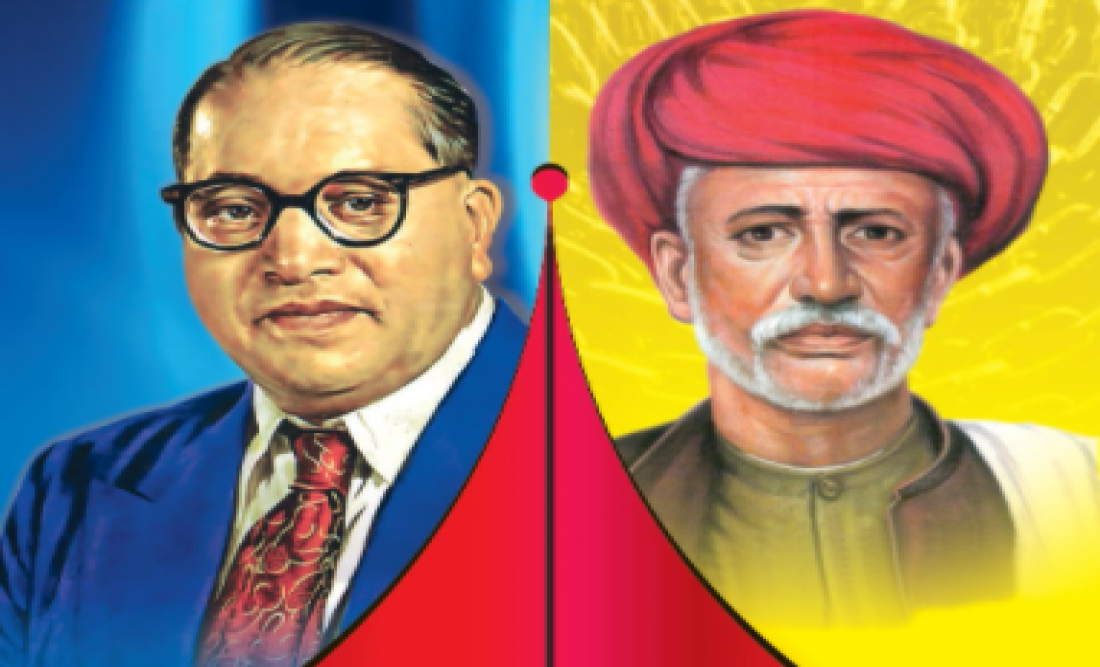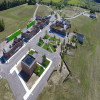Why did Ambedkar consider Jyotiba Phule as his mentor?

Jyotiba Phule, Dr. Ambedkar's third guru and a lifelong struggle for Shudras-Atishudras, women and farmers, saw the dream of social democracy.
Jotirao Phule, who is also known as Jyotiba Phule, is the first hero of the freedom struggle of Shudras-Atishudras, women and farmers in modern India. Dr. Ambedkar has considered Jyotiba Phule as his third guru along with Gautam Buddha and Kabir.
While dedicating his book 'Who were the Shudras?', Baba Saheb wrote that 'who awakened the small castes of Hindu society in relation to their sense of slavery towards the upper castes and who established the establishment of social democracy by foreign rule. It was more important than getting freedom from it, dedicated respectfully in memory of Mahatma Phule, the great Shudra of that modern India.
Phule wrote in the 'Caste Discretion of Discretion' (1865) that the distorted caste-discrimination described in the scriptures has enslaved the minds of Hindus for centuries. Apart from freeing them from this loop, nothing can be more important. Baba Saheb, in his famous work Destruction of Caste System i.e. 'Annihilation of Cast', calls for destroying the source scriptures of the caste system by following the same principle.
Jotirao Phule was born on 11 April 1827 in the Mali caste of Shudra varna in Maharashtra. The word Phule has come up in his name because of the Mali caste.
His father's name was Govindrao and mother's name was Chimnabai. When Phule was one year old, his mother Chimnabai died. He was raised by his father Buena Sagunabai. Sagunabai equipped her with modern consciousness.
After the Bhima Koregaon war in 1818, even though the British ended the rule of the Peshwa, their casteist ideology controlled social life. The doors of education for Shudras-Atishudras and women in Pune were closed. First of all Christian missionaries opened the doors of education for the Shudras-Ati-Shudras and women.
At the age of seven, Jotirao was sent to school to study, but soon Jotirao's father Govindrao pulled him out of school under social pressure. He started working in the fields with his father. His curiosity and talent impressed Gaffar Baig, a Urdu-Persian writer, and Lijit Saheb, a Christian evangelist. He advised Govindrao to send Jotirao to study and started going to Jotirao School again.
Meanwhile, at the age of 13, Jotirao was married to 9-year-old Savitribai Phule in 1840. In 1847, Jotirao started studying at the Scottish Mission's English School. This is where the promising student Jotirao got introduced to modern knowledge science.
After admission in Scottish Mission School, the idea of equality and freedom began to settle in Jotirao Phule. A new world opened up to him. Logic became his biggest weapon. They began to test everything on the basis of logic and justice. Started seeing the society around him from a new perspective. During this time, he faced caste insults in his personal life. This incident also helped to open his eyes in terms of varna-caste system and Brahmanism.
He completed his mission school in 1847. Jyotiba Phule was well aware that education is the weapon through which the Shudras, Atishudras and women can be liberated. He wrote in one of his poems - Vidya went without matting / without mati policy, policy went without motion…
He first lit the flame of education in his house. Educated his wife life-partner Savitribai Phule. Equipped them with knowledge science. They filled the feeling and thought that both men and women were equal. Every human being in the world is entitled to freedom and equality. Together with Savitribai Phule, Sagunabai, Fatima Sheikh and other colleagues, Jyotiba undertook to educate the communities deprived of education by the Brahmins for thousands of years and to make them aware of their human rights.
Putting these ideas into practice, the Phule couple opened the first school for girls in 1848. This school was the first school opened exclusively for girls in India, not only in Maharashtra. Jotirao Phule and Savitribai Phule openly challenged the scriptures by opening this school.
The purpose of Phule educating the Shudras-Atishudras and women was to reverse the social system based on injustice and oppression. When in the preface of his book 'Ghulamgiri' in 1873, he expressed the purpose of writing this book in these words- 'Shudradi Atishudra has been suffering for hundreds of years under the rule of Brahmins. The purpose of this book is to tell them how to get rid of these unjust people. '
As many of the supporters of Phule were for the emancipation of the Shudras and Atishudras, as many were also for the emancipation of women. He wrote about women that 'the doors of women education were closed by men. So that he does not understand human rights. 'There is no such fight for women's liberation, which Jyotiba Phule has not fought in her time. Jyotiba Phule, along with Savitribai, made her family a tangible form of gender equality and plunged into the struggle for equality in society and nation.
Phule chose the path of social service and social struggle together. He first opened the door to education for the disadvantaged people for thousands of years. Built an ashram for widows, the widow struggled for remarriage and opened her own water tank for the untouchables. Despite all this, he understood very well that injustice, inequality and slavery are not going to end without destroying Brahminism. For this, he founded the 'Satyashodhak Samaj' on 24 September 1873. The aim of the Satyashodhak Samaj is to oppose the mythological beliefs, to free the Shudras and Atishudras from the trap of the racists, to get rid of the inherent slavery maintained by the Puranas.
Through this, Phule started a cultural revolution against Brahminism. After the death of Jotirao Phule in 1890, Savitribai Phule took the responsibility of leading the Satyashodhak Society.
Apart from the Shudras, Atishudras and women, the community for which Jotirao Phule fought the most. The community belonged to farmers. In the book 'Kisan ka Koda' (1883), he exposed the pathetic state of farmers to the world. He said that the peasants were robbed of the class of Bhatt-Brahmins in the name of religion, the class of officers in various positions in the name of governance and the class of Seth-moneylenders. A helpless farmer tolerates everything.
Describing the purpose of writing this book, he writes that 'Shudra-peasant has reached a very disastrous situation due to many reasons related to religion and state. This book has been composed to discuss some of the reasons for this situation. ”Jotirao Phule was a thinker, writer and a constant warrior against injustice. He was the leader of the renaissance of Dalit-Bahujans, women and poor people. He wrote several texts to expose and challenge the truth of the Brahminical system based on exploitation-oppression and injustice. In which the major compositions are as follows:
1- Third Ratna (Drama, 1855)
2- Chhatrapati King Shivaji's Panwada (1869)
3- Brahmin's ingenuity (1869)
4- Ghulamgiri (1873)
5- Kisan's Koda (1883)
6- Satsara Points -1 and 2 (1885)
7- Ishara (1885)
8-The Untouchables Kaifiyat (1885)
9- Public Satyadharma Book (1889)
10- Mangalathaas and Puja Vidhi (1887)
11- Suitable for Satyashodhak Samaj Ankhadadi poetic compositions (composition not known).
Even though Jyotiba Phule left us in 1890, Jyotiba Phule, along with Savitribai Phule, lit the torch against the exploitation of Shudras-Atishudras and women, and later that torch was lit by Savitribai Phule. After Savitribai Phule, Shahuji Maharaj took this torch in his hands. Later he put the torch in the hands of Dr. Bhimrao Ambedkar. Dr. Ambedkar turned the torch into a flame of social change.

Manoj Bhiva
Manoj Bhiva is a dedicated writer who loves to write on any subject. Manoj Bhiva maintains a similar hold on politics, entertainment, health, abroad articles. Manoj Bhiva has total experience of 3 years in web and Social. Manoj Bhiva works as a writer in Wordict Post.
Holocaust allegation by Palestinian president rejected
Posted on 17th Aug 2022

Russian Rocket 'Totally Destroys' Dorm, Unknown Amount Dead: Zelensky
Posted on 18th Aug 2022








